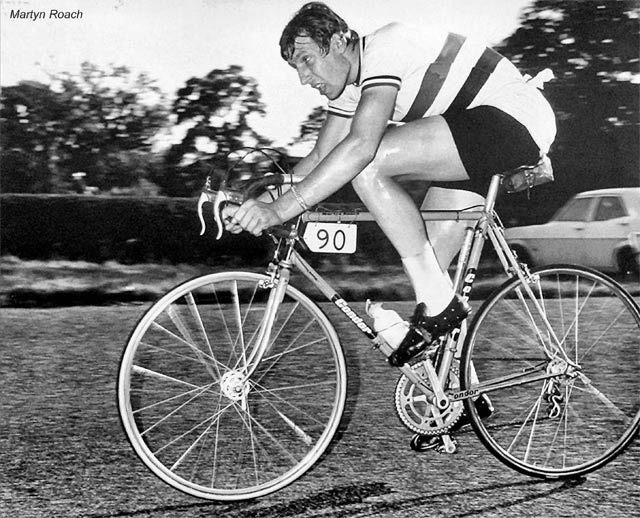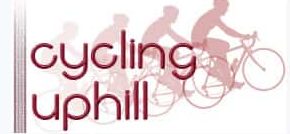The BBAR is the Best British All Rounder Competition. It was created in 1930 as a way of ranking riders for the three most popular distances of the time – 50 miles, 100 miles and 12 hour. The idea was that it would enable a national competition by allowing riders to race local events and then compare the average speeds of the riders in a national table. I believe it was the brainchild of ‘Cycling’ the forerunner to ‘Cycling Weekly’. For many years, Cycling Weekly would publish the latest BBAR tables and give big features on the winning riders.

Over the years, time trials have evolved, but the basic concept is the same, the ranking is determined by the average of the average speed of those three distance.
For a long time from 1930 until the 1970s, the BBAR was one of the premier domestic cycling competitions, with many of the top amateurs of the day trying to win it. Looking at the list of winners gives a great roll call of famous names including – Frank Southall, Charles Holland, Arthur Metcalfe, Ray Booty, Martyn Roach, Phil Griffiths, Ian Cammish. Beryl Burton won it every consecutive year from 1959 to 1983 (25 years on the trott). See list of BBAR winners
In the past couple of decades, the competition has suffered from less domestic interest. Fewer riders are interested in doing 12 hour time trials. It is the shorter distances – 10 and 25 miles which gain the most interest. You may get a few professionals trying to ride the national 10 or national 25, but the days of a pro road rider trying to win the BBAR are long over.
Although, it’s glory days are over, it still has the attraction of a lustrous history. It also appeals to those riders wanting to do the longer events. It probably keeps interest in 12 hours alive.
The BBAR competition has quite a few drawbacks, but it’s had these drawbacks for the past 30 years or so. Despite all attempts to change it’s format, the format has remains unchanged for a long time, and in my opinion it would be a shame if it did change.
Ever since I’ve got into cycling in my teenage years at Otley CC, I’ve been thinking about the BBAR and thinking about doing a 12 hour time trial. Since I got back into racing in 2005, I’ve done the odd 100 mile TT, but despite getting close to thinking about a 12 hour time trial, I’ve never got round to it. To be honest, I’ve found it’s very easy to think of a reason not to do a 12 hour time trial. Last year, I may well have done the National 12 hour in August, but with the National Hill Climb in October, it made no sense to risk dead legs when I needed to be concentrating on short sharp sprints up a hill.
But now, with the National Hill Climb under the belt, I have a little more confidence to go to the other end of the spectrum and go for a 12 hour. (well, not quite the end of the spectrum because there is the 24 hour time trial championship, but that will wait until I’m really a good and solid member of the Veteran Time Trial association, and thoughts of finishing on the National hill climb podium are well and truly over.)
This year, I’m planning to do the national 12 hour at the end of July in Yorkshire. I only know it is a pancake flat course (boo!) It will be weird to spend 12 hours cycling without going up a hill. I was toying with doing the 12 hour organised by Newbury CC in June, on my local Bentley course. But, after a disrupted winter, I think I might do better in July with more miles in the legs. I guess it’s best to do two 12 hours to give yourself best chance, but I’m expecting a while to recover from a 12 hour.
One thing I don’t particularly like about the competition is that to do well, you do have to do quite a bit of course selection and ride the events which are likely to give fastest times. This kind of goes against my philosophy of riding local events and finding the hilliest possible time trials. But, you can’t have everything. Mixed in with this dislike of course chasing there is, at the same time, an undoubted attraction of riding the fastest courses. It is a paradox. But, that’s just the way it is.
This is partly for my own benefit, and partly hoping people may leave comments about other potential good courses. But, this is rough plan
12 hour
- 15th June Newbury 12 – H12hr/8. Local course, would like to support WLCA event. easy to get support. Cons – June is not that far away! If I do a 12 hour in June, it might effect 50s in June a couple of weeks later due to tiredness.
- 27th July National 12 – Team Swift. Pros – National Championship. July is best time for preparation. Still long enough to recover for hill climb season. Cons all flat and not particularly fast.
100 Courses
- 25th May– H100/8 Hounslow & Distict . Local A31. I like this course. Not the fastest, but will give reasonable times. Early in season, but good for getting into swing of long events. 5 laps.
- 13th July.– National 100 B100/6. Quite a slow course I hear, but I’d like to do the national.
- 22nd July.– E2/100 – A fast course, but starts at 5.00am somewhere near Cambridge. I don’t like racing that early in the morning! But, I might have to set the alarm.
- 6th September – A100/4 – Probably the fastest 100 on the calender. But, it’s dangerously in the hill climb season. It would feel strange doing a 100 in September when I’m gearing up for hill climbs. I guess I’ll only enter, if it might make big difference to the final result.
50 Events
- 1th May. – H50/8 – Local 50 course, reasonably good.
- 7th June. Nat 50 – 7th June. Down near the south coast on single carriageway roads, not expected to be too quick.
- 28th June – A50/6 BDCA – . On the super fast Etwall roads. Riding the BDCA last year when I got close to a 1.39 (if I hadn’t got lost) encouraged me to take the BBAR more seriously this year.
- 19th July – E2/50C – Another potential quick one.

Very best of luck! I like the idea of a 12-hour TT, but not sure I’m there yet. Maybe in a few years!